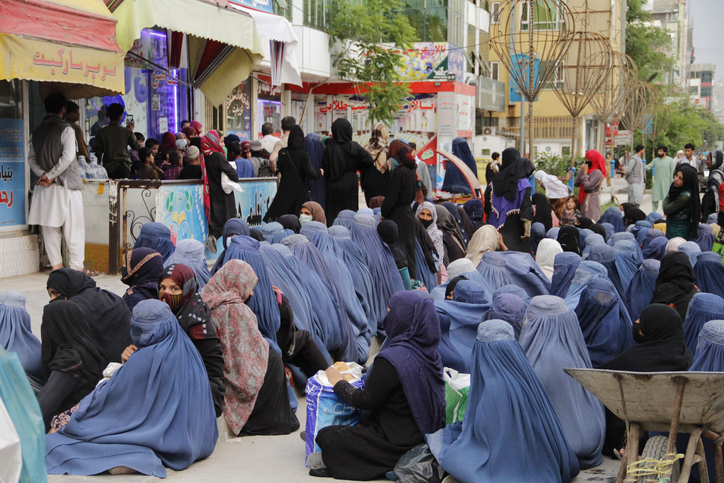The story of women’s education in Afghanistan is tragic, to say the least. After the first takeover by the Taliban in 1996, the regime imposed an extreme version of Islamic law (Sharia). Under these restrictions, women were banned from going to school. When the Taliban were expelled after the attacks of September 11, 2001, women and girls regained access to education from primary to graduate school.
This fundamental human right has been torn down again due to the US withdrawal from Afghan territory finalized in August 2021. The Muslim nation’s social, economic, and emotional loss is incalculable. “They destroyed the only bridge that could connect me with my future,” an anonymous student in Kabul told the BBC. At first, religious leaders promised a moderate approach honoring women’s fundamental rights, but before long, they began to activate restrictions like withdrawing them from the labor market, secondary education, and universities. Despite the presence of more moderate voices in the Taliban movement, the extreme faction has prevailed and is making the decisions that count.
This is not Islam.
Turkey’s foreign minister, Mevlüt Çavuşoğlu, called the decision non-Islamic and inhumane. “What harm does it do to educate women?” she commented to the Washington Post, explaining that their religion does not conflict with education; on the contrary, it promotes didactic objectives and science. Malala Yousafzai, a Nobel Peace Prize winner, shared this point and spoke out forcefully against these prohibitions, calling on all Muslim countries to condemn them.
“Muslim nations should unite for Afghan women and raise their voices for their protection because we all know that in Islam, education is an obligation for all human beings; it is an obligation for women,” Yousafzai told VOA News. While the outrage of leaders, academicians, and activists is evident, the economic impact is already leaving its mark on the country. UNICEF reports a tangible loss of $500 million in the last year. But those who lose most in this tragic situation are women, their families, and the academic and educational communities.
Uphill battle
Journalism professor Ismail Mashal, who went viral after tearing up his credentials on national television, has a direct line to the epicenter of this political catastrophe: the experience of those who were his female students and their families. “My students call me and ask me when I think they’ll be able to go back. I have no answers for them. I have no answers for my 12-year-old daughter, who won’t be able to go to high school next year.”
Mashal has become one of the most recognizable representatives of the efforts of thousands of parents, siblings, and teachers concerned about the future of women in Afghanistan. Since appearing on television, he has received death threats, but he intends to convene a national campaign for women’s educational rights. He is not the only one; groups of male students have boycotted classes and abandoned exams to protest the expulsion of their female peers.
How can you help?
UNESCO has developed a support strategy to safeguard Afghan women’s rights to education and generate as many teaching opportunities as possible. In coordination with other educational partners, it has issued a Multi-Country Preparedness and Response Plan (MCPRP with the following objectives:
- Providing community-based literacy classes
- Strengthening higher education system and supporting Afghan people’s access to higher education, especially for women Education data monitoring initiative
- Developing female teacher training hub for Afghan refugees in Iran
- Providing language training and support to assessment of prior learning for Afghan refugees in Tajikistan
Human Rights Watch, published four parameters for countries and organizations that want to donate and sponsor education efforts in Afghanistan:
Funding education without funding discrimination, supporting communities as they fight for women’s right to education, supporting and protecting Afghans under threat for defending the right to education, and monitoring all aspects of education. If you want to help, there are aid organizations and government agencies from various countries to boost the female educational offering in Afghanistan.
Independent organizations, like the Educational Center for Afghan Women, the Afghan Women’s Mission, and the Afghan Women’s Network, are leaders in the effort to recover their fundamental right to education. In addition to contacting these organizations, you can become an activist to draw attention to Afghan refugees in your community and support them. You can also write to your local representative about your concern for the future of women’s education in Afghanistan or donate directly to whoever is working to ensure their continuity.
This article from Observatory of the Institute for the Future of Education may be shared under the terms of the license CC BY-NC-SA 4.0 
)
)


)